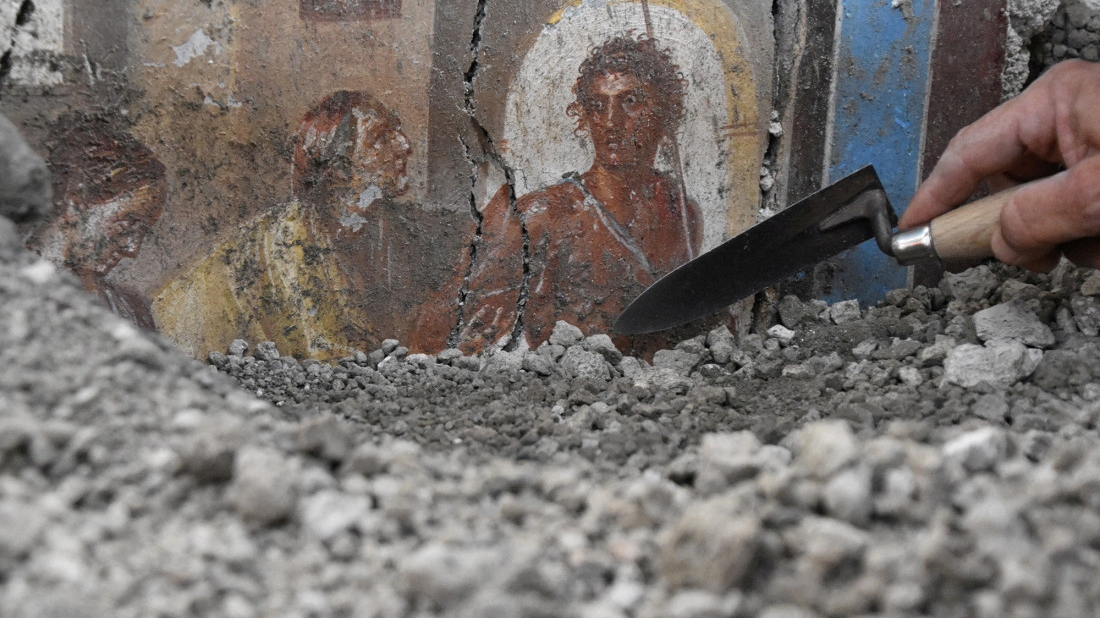Archaeologists in Pompeii have uncovered the House of Phaedra, a richly decorated yet modest home featuring vivid mythological frescoes. This unique first-century residence offers a fresh perspective on ancient Roman architecture and art.
Archaeologists have recently unearthed a small but elaborately decorated house in Pompeii, the ancient Roman city, featuring remarkably preserved frescoes with mythological themes.
Known as the House of Phaedra, named after the mythological queen of Athens depicted on one of its walls, this residence sheds light on architectural styles from the first century AD, as noted by the Pompeii archaeological park.
Distinct from typical Roman homes, this house lacks an atrium—a central open space traditionally used for rainwater collection. Although modest in size, its vibrant wall decorations rival those of a nearby, more luxurious residence.
Pompeii, near modern-day Naples, was famously entombed in volcanic ash by Mount Vesuvius's eruption in AD 79. This catastrophic event, which claimed many lives, also preserved a unique glimpse of Roman life, with buildings and residents encased in time beneath the ash.



















What is your opinion on this topic?
Leave the first comment